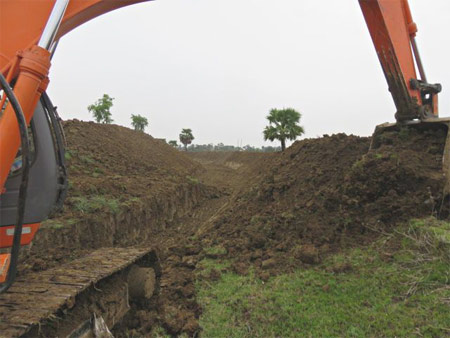
Our project in Bihar looks to improve water availability and agricultural productivity for sharecroppers and small holder farmers in Nalanda district, Bihar, by the restoration of traditional pynes and the introduction of sustainable, climate resilient agriculture. More specifically, it envisages the restoration of 10,870 m of pynes (along the secondary and tertiary branches), the expansion of land under irrigation by approximately 552 acres and a simultaneous reduction in the dependence on groundwater. This restoration will be done with the agreement and participation of the village communities and monitored by our partner organisations, namely Lok Swarag Sangh, Samaj Kalyan Mandal and Seva Mandal.
Climate resilient agriculture
Water security
Extreme weather events characterise climate change, and Nalanda district, like much of the rest of the country swings between flood and drought. Ensuring a steady supply of water for irrigation forms the basis of any climate change initiative. Restoring the pynes will ensure that the flood is captured and the flood water saved for use during periods of no rain. This will be the first stage of the project.
Soil health
The non-judicious of chemical fertilisers and pesticides, mono-culture, repeated drought and the use of hybrid seeds have led to soil degradation. This project envisages the re-introduction of organic fertilisers (farmyard manure and compost) and pesticides, and indigenous seeds to improve soil health, and improve the disease-resistance of crops and, in turn, improve agricultural productivity.
Multi-cropping
Large tract of farmland have over the years, been given over to single crops for the rabi and kharif season. Multi-cropping will, to a degree, insure the harvest against large-scale damage due to unpredictable weather. Simply said if the rain or winds completely destroy one harvest the chances are the other is of a different height or at a different point in the crop cycle and is therefore less likely to be destroyed.
Approximately 30 acres of land will be brought under organic cultivation and multi-cropping for the first crop cycle, and if proved successful, this will be expanded for the winter crop.

